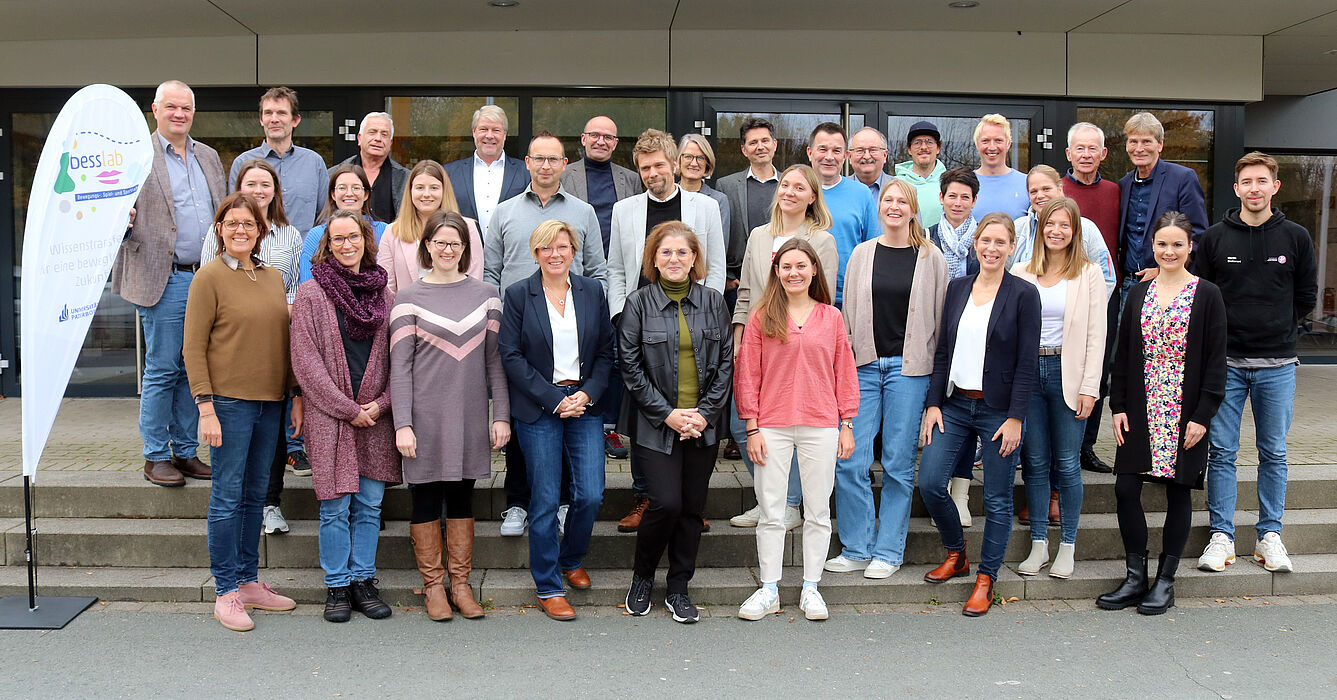Expert discussion of the Research Association for Child and Youth Sport NRW at Paderborn University: Experts from science, politics and organised sport discuss the promotion of physical activity in primary schools
The World Health Organisation (WHO) recommends one hour of exercise a day for a healthy lifestyle. According to recent studies, however, children's everyday lives are already characterised by a lack of exercise. A gradual legal entitlement to all-day care in primary schools from 2026 could change this. "The legal entitlement to all-day education at primary school level comes with the opportunity to reach many adolescents with exercise and sports programmes," says Prof Dr Miriam Kehne, Head of the AG "Childhood and Youth Research in Sport" at Paderborn University. Experts from the fields of science, politics and organised sport from Germany and Switzerland met at Paderborn University to discuss the quality of exercise, play and sport throughout the day at the sixth expert discussion of the Research Association for Child and Youth Sport NRW (FKJ). In addition to Kehne as spokesperson for the FKJ cluster "Ganztag", FKJ Managing Director Dr Stefanie Dahl had also invited the participants.
Different perspectives on movement, play and sport
"Exercise, play and sport offer special potential for the upbringing and education of children and young people in everyday school life. At the same time, the development of children and young people can benefit greatly from physical activity. Accordingly, this topic is increasingly coming into focus when talking about all-day schooling in the future," explains Kehne. In order for the benefits of all-day schooling to be realised, it is necessary to take into account the different interests of primary school pupils as well as the quality of the activities on offer.
The current state of research provides little information on this. In order to categorise the current situation and derive specific needs for action, reliable data on the multi-layered quality factors is crucial. The aim of the expert discussion was therefore to look at the quality of physical activity, play and sport in all-day programmes from different perspectives and to identify criteria and survey instruments for quality assurance. In addition to academics from the NRW university locations, representatives from the State Chancellery and the Ministry of Schools and Education of North Rhine-Westphalia, the German Sports Youth, the district governments of Münster and Detmold, the Westphalia and Reinhard Mohn Foundation, the NRW Accident Insurance Fund, the NRW State Sports Association, the NRW Sports Youth and the Paderborn District Sports Association took part in the symposium.
Exchange between science and practice
Kehne's team has been researching the topic of promoting physical activity among children and young people for several years. The "Movement, Play and Sport Laboratory" (besslab), founded in 2021, is at the interface between science and practical application. "In order to guarantee children a physical activity-friendly school day, schools need to be integrated into a local network. A lively exchange between practice and science is essential for the development of quality standards," says Dr Nicole Satzinger, responsible for networking and practice transfer at besslab.
Prof Dr Ivo Züchner from the University of Marburg gave a theoretical insight into the topic and focused on the structural, process and result quality of exercise and sports activities. In his presentation, he emphasised the importance of clarifying objectives. Johanna Kress and Prof. Dr Ilaria Ferrari-Ehrensberger from the Zurich University of Teacher Education presented a current example of holistic physical activity promotion in all-day education from Switzerland. Their successful project SINTA (Sport in Schulen mit Tagesstrukturen) offers open programmes in the sports hall of day schools at lunchtime. The focus is on professionalising childcare staff in the area of promoting physical activity.


